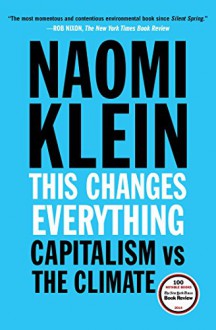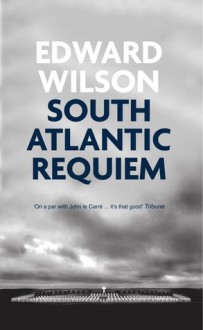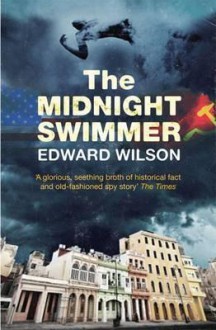
On reading this again after a couple of decades, I am struck with how brilliantly it is written. The subtlety and incisiveness of Wilson's prose is startling at times, and the sheer depth of his insight into human nature something close to breath-taking. I am also surprised at how well this holds up after all these years. There is very little in Wilson's many acute observations that would need changing. Also, it is interesting to see, in retrospect, that it is this book and not his monumental, Sociobiology: The New Synthesis (1975), that continues to serve as an exemplar for later texts. For example, Paul Ehrlich's recent book on evolution was entitled On Human Natures (2000), the plural in the title suggesting that it was written at least in part as a reaction to Wilson. I also note that some other works including Matt Ridley's The Red Queen: Sex and the Evolution of Human Nature.(1993), Robert Wright's The Moral Animal: Evolutionary Psychology and Everyday Life (1994), and more recently, Bobbi S. Low's Why Sex Matters: A Darwinian Look at Human Behavior (2000), are organized intellectually in such a manner as to directly update chapters in Wilson's book.
On Human Nature was written as a continuation of Sociobiology, greatly expanding the final chapter, "Man: From Sociobiology to Sociology." In doing so, Wilson has met with reaction from some quarters similar to the reaction the Victorians gave Darwin. Wilson's sociobiology was seen as a new rationale for the evils of eugenics and he was ostracized in the social science and humanities departments of colleges and universities throughout the United States and elsewhere. Rereading this book, I can see why. Wilson's primary "sin" is the unmitigated directness of his expression and his refusal to use the shield and obfuscation of politically correct language. Thus he writes on page 203, "In the pages of The New York Review of Books, Commentary, The New Republic, Daedalus, National Review, Saturday Review, and other literary journals[,] articles dominate that read as if most of basic science had halted during the nineteenth century." On page 207, he avers, "Luddites and anti-intellectuals do not master the differential equations of thermodynamics or the biochemical cures of illness. They stay in thatched huts and die young."
In the first instance, he has offended the intellectual establishment by pointing out their lack of education, and in the second his incisive expression sounds a bit elitist. But Wilson is not an elitist, nor is he the evil eugenic bad boy that some would have us believe. He is in fact a humanist and one of the world's most renowned scientists, a man who knows more about biology and evolution than most of his critics put together.
I want to quote a little from the book to demonstrate the incisive style and the penetrating nature of Wilson's ideas, and in so doing, perhaps hint at just what it is that his critics find objectionable. In the chapter on altruism, he writes, "The genius of human sociality is in fact the ease with which alliances are formed, broken, and reconstituted, always with strong emotional appeals to rules believed to be absolute" (p. 163). Or similarly on the next page, "It is exquisitely human to make spiritual commitments that are absolute to the very moment they are broken." Or, "The genes hold culture on a leash. The leash is very long, but inevitably values will be constrained in accordance with their effects on the human gene pool" (p. 167). He ends the chapter with the stark, Dawkinsian conclusion that "Morality has no other demonstrable ultimate function" than to keep intact the genetic material.
In the chapter on aggression, he posits, "The evolution of warfare was an autocatalytic reaction that could not be halted by any people, because to attempt to reverse the process unilaterally was to fall victim" (p. 116). On the next page, he quotes Abba Eban on the occasion of the 1967 Arab-Israeli war, "men use reason as a last resort."
In the chapter on religion, he argues that the ability of the individual to conform to the group dynamics of religion is in itself adaptive. As he avers on page 184, "When the gods are served, the Darwinian fitness of the members of the tribe is the ultimate if unrecognized beneficiary."
It is easy to see why some people might be offended at such a frank and penetrating expression. But one of the amazing things about Wilson is that he can be bluntly objective about humanity without being cynical. I have always found his works to be surprisingly optimistic. He has the ability to see human beings as animals, but as animals with their eyes on the stars. In the final chapter entitled, "Hope," Wilson presents his belief that our world will be improved as scientific materialism becomes the dominate mythology. Note well this point: Wilson considers scientific materialism, like religion and the macabre dance of Marxist-Leninism, to be a mythology. His point is that there is no final or transcending truth that we humans may discover; there is no body of knowledge or suite of disciplines that will lead us to absolute knowledge. There are only better ways of ordering the environment and of understanding our predicament. He believes that toward that end scientific materialism will be a clear improvement over the religious and political mythologies that now dominate our cultures.
No one interested in evolutionary psychology can afford to miss this book, even though it was written the 1970s. It is a classic. Anyone interested in human nature (yes, one may profitably generalize about human nature, as long as one understands what a generalization is, and appreciates its limitations) should read this book, one of the most significant ever written on a subject of unparalleled importance.
--Dennis Littrell, author of “Understanding Evolution and Ourselves”

 Log in with Facebook
Log in with Facebook 
















